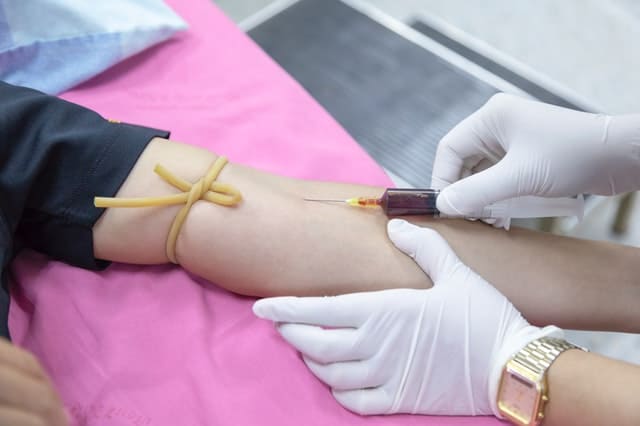Drugs and alcohol have a variety of effects on your body, both psychologically and physiologically. You may feel a rush of energy or a sense of lethargy as the drugs are in effect. But did you know that those drugs often physically stay in your body much longer than the effects last?
Some will leave traces for several more hours past the effects, or even days. Some will even linger longer in different parts of the body! This information is important to keep in mind because many jobs will have new recruits take drug tests upon employment, and may continue to run them throughout your career.
The best way to avoid these problems is to make the effort to not abuse drugs in the first place. Nevertheless, it is important to be aware of how these drugs affect your body.
Methods of Drug Testing
There are a number of different ways a person can be tested for drugs in their system. One of the most common methods is running tests on a person’s urine. The urine test is often used for medical purposes, as well as in the workplace or even in schools. It provides a larger specimen sample compared to most drug tests but it can be easier to fake or alter and timing can be inconvenient.
The breath test is one of the most well-known, often used to test drivers for alcohol potency by police officers, but this test is only effective with alcoholic substances. Saliva drug tests may be more effective for other types of drugs and are easy to detect, but the window of time for detection is short.
Running a blood test is effective for recent use of drugs, but it is not used as often due to costs and some consider the process invasive. A more reliable test would be the sweat drug test—which is easy to test, records use from as far back as 24 hours, and is difficult to fake.
One of the most obscure yet effective drug tests, however, is the hair drug test. Hair has a much longer test window than most other methods, is simple, non-invasive, quick, and convenient. Its only major downside is being unable to detect smaller doses of drug use.
Factors of Drug Detection
While many drug tests work the same for most people, there are a number of factors that can affect the results. The rate at which a person’s body metabolizes a drug is affected by the following factors:
- Age
- Weight
- Overall body mass
- Fitness level
- Hydration level
- Drug tolerance
- Drug use frequency
Because there are so many variables in analyzing and detecting drugs in a person’s body, the exact detection times cannot be predicted. However, accurate estimates of how long drugs may stay in the body can be made.
How Long Do They Stay?
The amount of time a drug lingers in your body depends on the drug itself. Some drugs will remain in the body longer or shorter in different parts.
Most drugs will typically linger in blood and saliva for the shortest amount of time, in urine for moderately longer, and in hair the longest. In fact, all drugs can linger in hair for up to 90 days.
Alcohol will stay in blood and saliva 12-24 hours, while varying between 10-48 hours in urine. Marijuana can be in blood and saliva for up to 24 hours, but in urine, from anywhere up to 30 days. Cocaine is more consistent, staying in the rest of the body for 2-10 days, while LSD stays in blood and saliva for 2-4 days, and in urine for only 2-24 hours.
Both morphine and heroin will stay in saliva and the bloodstream for up to 36 hours and in urine for 2-3 days, but it should be noted that morphine, in particular, is often used for medical purposes and might be found in people who have recently undergone medical treatment or surgery. PCP can also stay in blood and saliva for 1-3 days, but in urine for 5-6 days.
There are many other drugs that may stay in the body for different time spans, which can all be researched. However, the best way to avoid the problem of drug detection is to simply avoid addiction in the first place. By stopping drug abuse and considering behavioral therapy and detox treatment, you may be able to conquer the struggle of drug addiction.

If you or a loved one is considering rehabilitation for drug or alcohol addiction, contact a local Treatment & Rehab program in Tennessee. You might also investigate Discovery Place’s own recovery programs, such as our 30 Day Residential Addiction Recovery Program or our Long Term Recovery Program in Burns, Tennessee. Call us for a free consultation at 1-800-725-0922.

